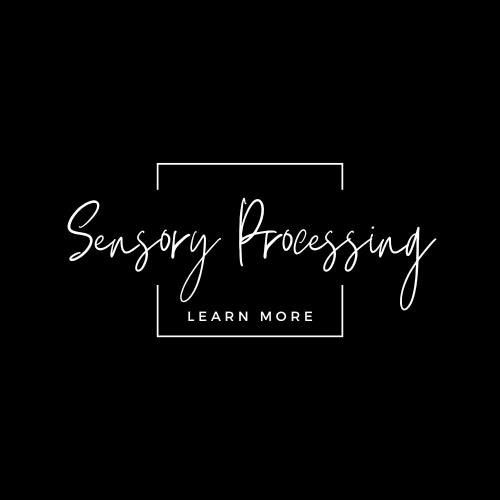learn more
With more than two decades dedicated to honing our expertise and accumulating valuable resources, we recognise that embarking on the journey of therapy can be overwhelming. Explore the topics of interest below, carefully curated to empower you with insights into understanding your child's challenges more effectively.
What is Sensory Processing?
Our eight sensory systems give us a sense of ourselves and our place in the world. They help us produce appropriate responses for different situations, tasks and environments. When sensory processing is well developed, it positively influences cognitive development, communication, self-regulation, motor skills, and interactions with the environment.
What are Sensory differences?
Sensory differences arise when the brain struggles to process and respond to environmental sensory information. This can impact a child's ability to organise themselves, learn, and navigate their surroundings.
These differences manifest in various ways, such as heightened sensitivity, seeking more sensory input, or appearing disengaged. Challenges may include emotional regulation, motor skills, daily tasks, and social interactions, but they also come with unique strengths like a love for movement and affection.
Understanding arousal state & sensory differences
Children with sensory difficulties often operate in an arousal state skewed toward fight-or-flight, affecting learning, attention, emotional regulation, and their sense of safety. They may appear out of sync with their environment, hindering their daily activities. It's important to understand that optimal arousal and synchronisation don't necessarily mean compliance but rather an arousal state that enables the best performance for that individual in their environment.
Indicators of sensory differences
It is important to note that we all have our own unique sensory profile. It only becomes a disorder when it impacts function. Some possible indicators are:-
- Heightened reactivity to sound, touch or movement
- Under-reactivity to certain sensations, e.g. not noticing name being called, being touched, high pain threshold
- Seeking increased amounts of auditory, tactile or movement input, e.g. making noises to self, constantly touching objects/people, being “on the go”
- Appears lethargic/disinterested, appearing to be in their own world mostly
- Difficulty regulating emotional responses; increased meltdowns, emotional reactions, need for control, impulsive behaviours, easily frustrated or overly compliant
- Easily distracted, poor attention and concentration
- Poor motor skills; appears clumsy; reduced coordination, balance and motor planning skills; poor handwriting skills
- Difficulty mastering activities of daily living, e.g. dressing, tying shoe laces, self-feeding
- Poor sleep patterns
- Restricted eating habits or picky eater
- Difficulty engaging in grooming tasks, e.g. hair-brushing, hair-washing, nail cutting etc
- Loves movement and appears to have a need for intense pressure, continually seeking this out, e.g. constant spinning, running around, jumping, crashing into objects/people
- Avoids movement-based equipment, e.g. swings, slides etc
- Appears floppy or has ‘low muscle tone, tires easily and is often slumped in postures
- Does things with too much force, has big movements, moves fast, writes too light or too hard
- Delayed communication and social skills, hard to engage in two-way interactions
- Prefers to play on their own or have difficulty in knowing how to play with other children
- Difficulty accepting changes in routine or transitioning between tasks
- Difficulty engaging with peers and sustaining friendships
- Difficulty handling new situations or environments
- Anxiety
Parents of children with sensory difficulties
Parents of children with sensory differences often find it hard to get someone to find the why behind the difficulties their child is experiencing. They intuitively know that there is something making it harder for their child to function in their day-to-day activities; however, unless they encounter a trained professional, their concerns may be overlooked, misinterpreted or dismissed. When parents learn their child has these differences and begin to understand them, they often report that this is the first time someone has truly understood their child and given meaning to the difficulties their child is experiencing and which they encounter as a family.
At Sensational Kids OT, we understand that parents of children with sensory differences often face a challenging journey in seeking answers for their child's unique struggles. It can be a frustrating and isolating experience, as they instinctively sense that something is affecting their child's day-to-day life, yet finding the right guidance can be elusive. All too often, their concerns are either overlooked, misinterpreted, or dismissed by well-meaning individuals who lack the necessary expertise.
We believe that every child deserves to be truly understood, and it's our mission to bridge the gap between uncertainty and clarity. When parents turn to us and discover that their child has sensory differences, it marks a pivotal moment in their lives. It's the first time someone has taken the time to deeply comprehend their child's experiences and provide meaning to the challenges their child and their family face together.
At Sensational Kids OT, we're here to provide you with the knowledge, support, and professional expertise you need to empower your child to thrive and embrace their unique sensory journey.
Treatment
Occupational therapy (OT) is a fun space for children, even when it involves hard work!
We aim to shape how the body responds to sensory input and create meaningful responses. We also empower parents, caregivers, families, and educators to understand and support the child's unique sensory processing style.
In OT, children actively explore sensations through play under the guidance of our therapists. We stimulate neural pathways and provide organization in the central nervous system for more regulated responses. This creates a neural foundation, freeing up higher cortical levels for advanced skills. By addressing underlying causes rather than just symptoms, we help children thrive and succeed.
The specific aims of our sensory integration-focused OT include enhancing social participation, boosting self-esteem, nurturing self-regulation, and refining sensory-motor abilities. We're here to make every step of the journey a rewarding one!
Outcomes of therapy
We don't aim to 'fix' your child's sensory profile, but rather to support them in regulating and achieving their optimal functionality in their daily life. While there's no known cure for SPD, we focus on fostering positive changes that can lead to improvements in various areas, such as:
- Attention & Focus
- Self-regulation with responses being better matched to their environment
- Postural Control
- Praxis (motor planning), balance & coordination
- Fine motor skills
- “Evenness” or more regulated emotional responses
- Oral motor control and improved eating habits
- Communication, articulation and social skills
- Increased engagement, interaction and development of play skills
- Visual-motor integration
- Improved sleep patterns
- Increased learning opportunities
- Becoming less or more responsive to sensation received
What is a treatment intensive?
Treatment intensives represent an effective therapeutic approach tailored for children facing sensory, regulation, and motor challenges. While this concept has been widely employed in the USA for an extended period and has been a core part of our clinic's practice for over a decade, it remains relatively novel in the Australian healthcare landscape, especially among other clinics.
SKOT has innovatively adapted this treatment model to enhance accessibility for a broader range of individuals who might otherwise face limitations due to factors such as geographical constraints, time commitments, long waiting lists for services, or individuals who cannot take breaks from their routine therapy appointments.
how do they work?
An intensive treatment block involves your child receiving concentrated therapy in short, intensive blocks, compressing what would typically span several weeks or even months into a shorter timeframe. The essence of a treatment intensive lies in delivering a consistent and rigorous therapeutic regimen, employing highly specialized techniques. This focused input is meticulously designed to elicit responses from the Central Nervous System (CNS), aiming to initiate changes within the CNS organization and enhance subsequent CNS responses.
It's crucial to note that a 'treatment intensive' is not meant to serve as a 'cure.' Instead, it serves as a valuable foundation upon which further transformations can be cultivated and refined through ongoing treatments and home and school programs.
what happens after an intensive?
Following a treatment intensive, families have various options to consider. Some may discover significant benefits from this approach and choose to continue with regular holiday treatment intensive blocks throughout the year. Others may achieve their desired therapy goals and may be discharged from our services. Some children may transition to other facets of our service, such as term sessions or group-based programs.
Additionally, after completing an intensive program, families have the opportunity to consult with their therapist to design and support a tailored home program to be implemented between therapy blocks. With numerous available options, many families find this treatment model to be highly advantageous for their children and seamlessly integrated into their schedules, enabling them to continue their therapeutic journey.


